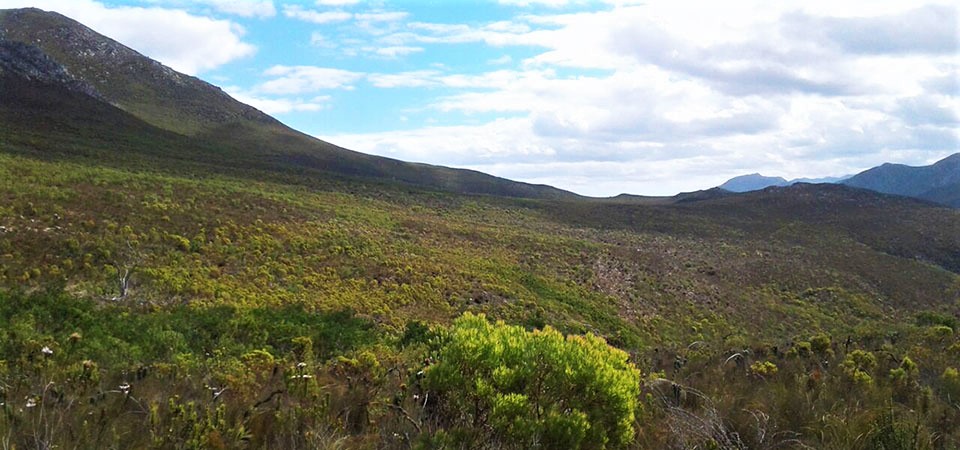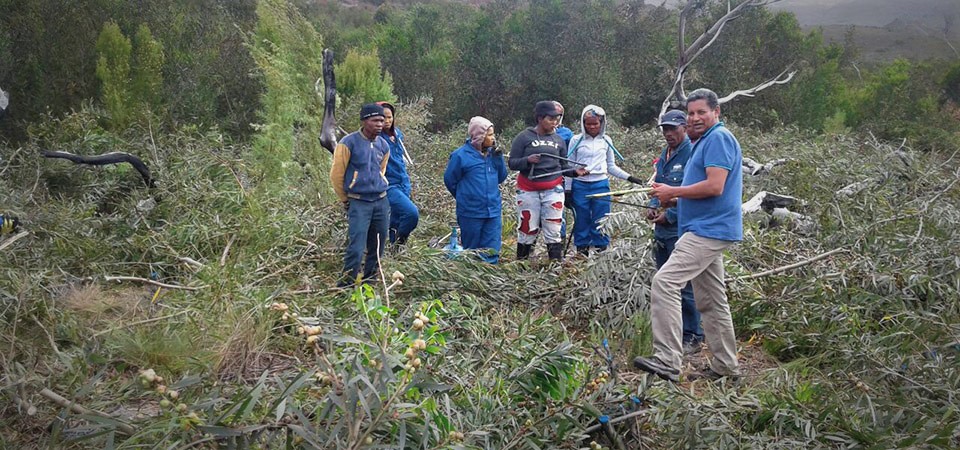How the water crisis and invasive plants go hand in hand
It has been a topic of discussion for many months – the Western Cape water crisis. Day Zero could still materialise, putting extreme pressure on the people of the Cape. World Water Day was on 22 March – the perfect day to highlight what can be done to protect this scarce resource.
The people of the Western Cape have drastically reduced the litres of water they use each day – now at 50 litres a day. The City of Cape Town and surrounds are at level 6B water restrictions. And the public has responded to this challenge with innovation.

Landscape cleared of alien plants.
Photograph by the Flower Valley Conservation Trust.
So aside from saving water, what can we do to look after our water?
A major threat to water in the landscapes is the alien invasive vegetation. The Western Cape is overwhelmed by invasive species like Pines and Port Jacksons, consuming much water on a daily basis – compared to our endemic species like fynbos and renosterveld.
What is the impact of invasive species on our water supply? The ABI team did some research:
- According to David le Maitre of the Council for Scientific and Industrial Research, 33 000 Olympic sized swimming pools of water are being sucked up by alien plants every year on the Agulhas Plain.
- As an example, one adult Pine tree consumes around 900 litres of water a day.
- Invasive aliens reduce water run-off by 30% in heavily infested areas. (CapeNature).
- Invasive alien vegetation has become established in more than 10 million hectares across South Africa. (Department of Environmental Affairs).
- CapeNature has noted that the top 10 species affecting the Western Cape are Rooikrans, Black wattle, Port Jackson, Silky hakea, Long-leafed wattle, Stinkbean, Australian myrtle, Spider gum, Cluster pine and Blackwood.
According to David le Maitre of the Council for Scientific and Industrial Research, 33 000 Olympic sized swimming pools of water are being sucked up by alien plants every year on the Agulhas Plain.

Clearing team in veld overwhelmed by alien vegetation.
Photograph by the Flower Valley Conservation Trust.
The invasive epidemic and the water crisis in the Western Cape go hand in hand.
That’s why ABI and Flower Valley Conservation Trust have been working with partners, landowners and the Department of Environmental Affairs for the past 5 years to help manage the problem.
So far the project has employed approximately 250 participants each cycle of clearing, and has cleared thousands of hectares of land on the Agulhas Plain, maintaining those hectares. And we don’t plan on stopping anytime soon – as this is a long-term challenge.
Want new articles before they get published?
Subscribe to our Awesome Newsletter.

